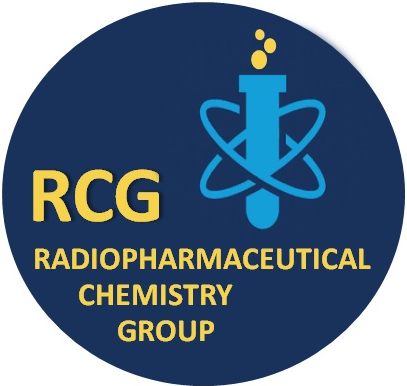Description
The Radiopharmaceutical Chemistry Group research interests focus on the design, synthesis, characterization and preclinical evaluation of novel radiolabelled compounds for nuclear imaging and radionuclide therapy of localized and/or multi-focal diseases, such as primary and metastatic cancer. Aiming to achieve target-specific imaging and therapy, the radionuclide of choice is appropriately attached to high-affinity and selective bioactive molecules (e.g. small organic molecules, peptides, etc.) which bind selectively in-vivo to targets associated with the manifestation of disease (e.g. enzymes, receptors, transporters, etc.)
An integral part of the group’s research interests lies in the study of (radio)metal-chelator complexes, mainly with γ-emitters such as 99mTc/Re. These complexes are the “building-blocks” for the derivatization of biological vectors of interest. Other fields of research include the lead optimization of small bioactive molecules and their labelling with the radionuclide of choice (e.g. 18F, 68Ga, 99mTc and others) as well as the development of novel radiosynthetic methodologies for labelling sensitive biomolecules under benign conditions.
Our group aims to advance research following an interdisciplinary approach, in order to provide the next-generation diagnostic and therapeutic probes for use in preclinical studies. Moreover, in collaboration with industrial, clinical and academic partners, we evaluate the potential of new probes in medical practice, for the direct benefit of the healthcare community and patient.
As over the past 50 years, the Radiopharmaceutical Chemistry Group is a key-partner of Nuclear Medicine in Greece, for the medical use of radioisotopes in diagnosis & therapy of various diseases. In addition, the group holds significant technological expertise and facilities (Hot Lab & Clean Room technologies) for the development of novel radiopharmaceuticals.
As a result of its R&D projects, our Group holds the marketing authorization by the National Organization for Medicines, of three innovative radiopharmaceutical products, namely: Rhenium-186 Sulphide Colloid for radiosynoviorthesis, 99mTc(V)DMSA for the diagnosis of thyroid medullary carcinoma and 99mTc-MIBI for myocardial imaging.
All protocols followed are in conformance to EU and national guidelines for medicinal products, radioprotection and radioactive waste management.
For more information on our infrastructure please follow this link: Radiopharmaceutical Chemistry Laboratory





